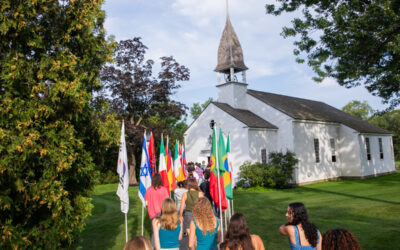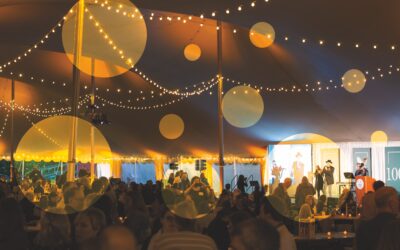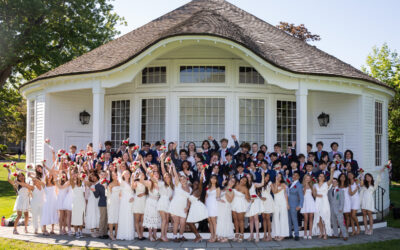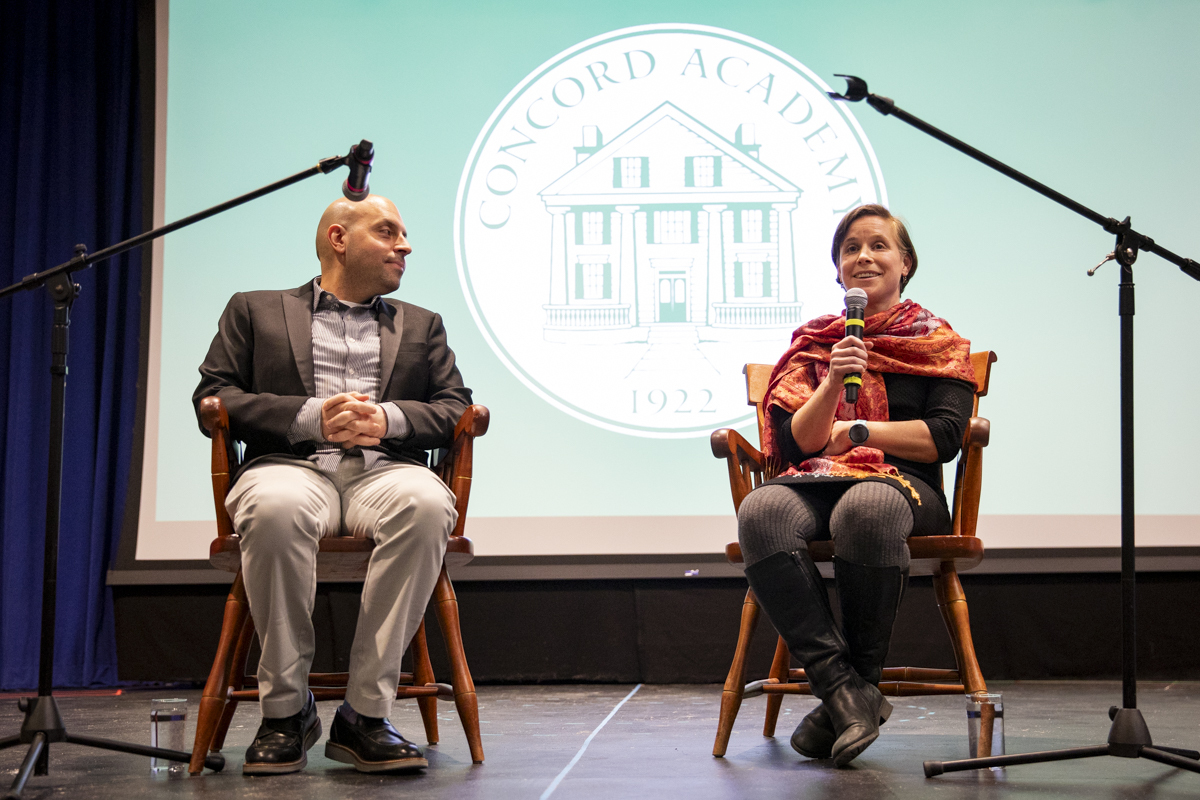
On February 1, the Community and Equity Office hosted an assembly about peacebuilding through dialogue in the Performing Arts Center. Head of School Henry Fairfax and Community and Equity Co-Heads Alex Holmes and Vicky Orozco introduced the presenters, Sa’ed Atshan and Karen Ross, both professors of peace and conflict resolution studies. Responding to questions submitted by students in advance, they shared their life stories and offered students insights on engaging in challenging conversations about global issues, including the conflict between Israel and Hamas.
Ross is an associate professor of conflict resolution in the Department of Conflict Resolution, Human Security, and Global Governance at the University of Massachusetts Boston. She grew up in Jerusalem, where she attended a Jewish school and lived largely insulated from people of other faiths. Her family later relocated to the United States, settling in a racially, ethnically, and socioeconomically diverse town north of New York City. Her desire to understand why her early homogenous experience within such a “tapestry of a city” in Israel had been so different led her to study sociology and focus on Middle Eastern studies. She sought out ways of “complicating” the worldview with which she had grown up, she said. Her doctoral research involved working with education organizations that bring together Jewish and Palestinian citizens of Israel. Her academic work centers on the impact of grass-roots peacebuilding interventions.
Atshan is an associate professor of peace and conflict studies and anthropology and chair of the Department of Anthropology at Swarthmore College. He grew up in the West Bank, part of the Christian minority community, and attended the Ramallah Friends School, where he embraced the Quaker values of pacifism and equality. As a teen, he attended Seeds of Peace, a coexistence summer camp in Maine that brings together youth from conflict zones, where he engaged with Israeli civilians for the first time. He described it as a “transformative experience to see each other’s humanity, develop empathy, and commit ourselves to peace.” He pursued higher education in the U.S., embracing his identity as a member of the LGBTQ+ community and studying intersectionality to understand how all forms of oppression are interconnected.
The presenters began with a broad focus on conflict. “In our field, we understand conflict is not necessarily bad,” Atshan said—trying to avoid conflict can allow issues to fester. Acknowledging that not all Israelis share the same viewpoint, nor do all Palestinians, he foregrounded the values and goals he teaches his students to hold consciously when they engage in difficult conversations: “How can we confront conflict in a nonviolent, constructive, and productive manner rooted in kindness, empathy, compassion, and love, leading to a peaceful and just resolution?”
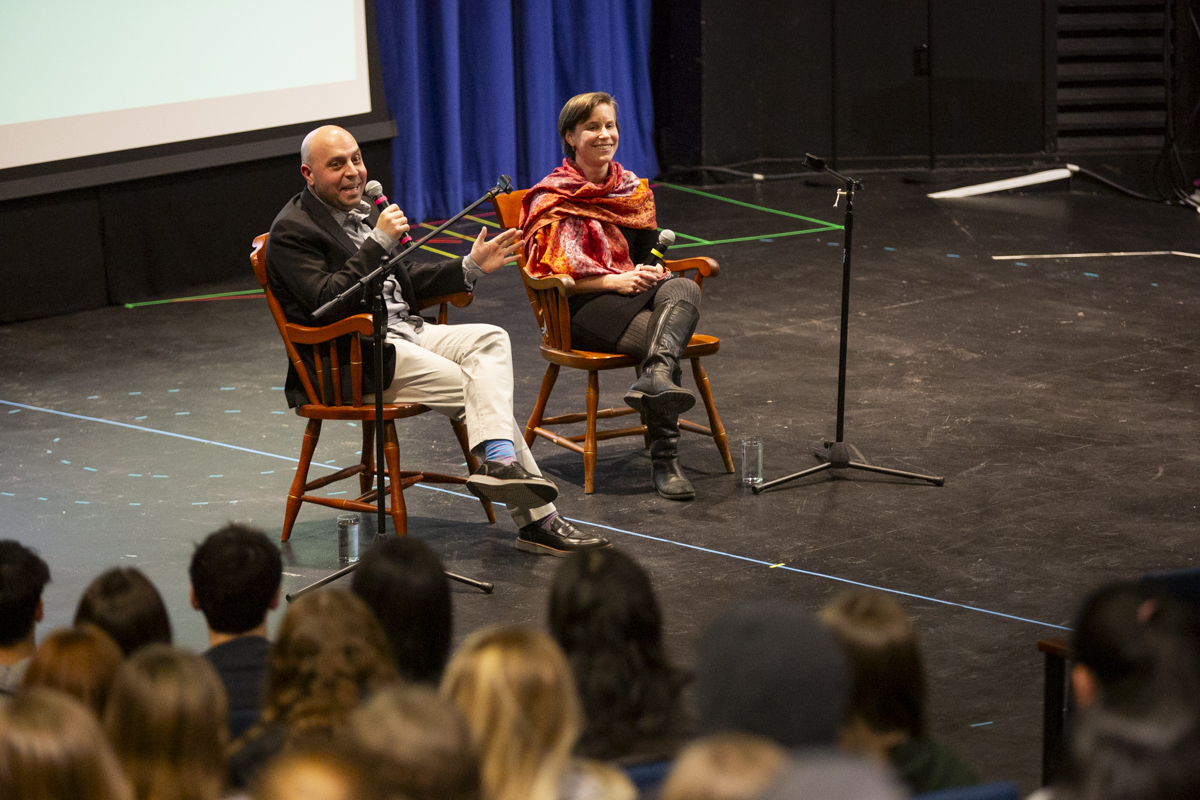
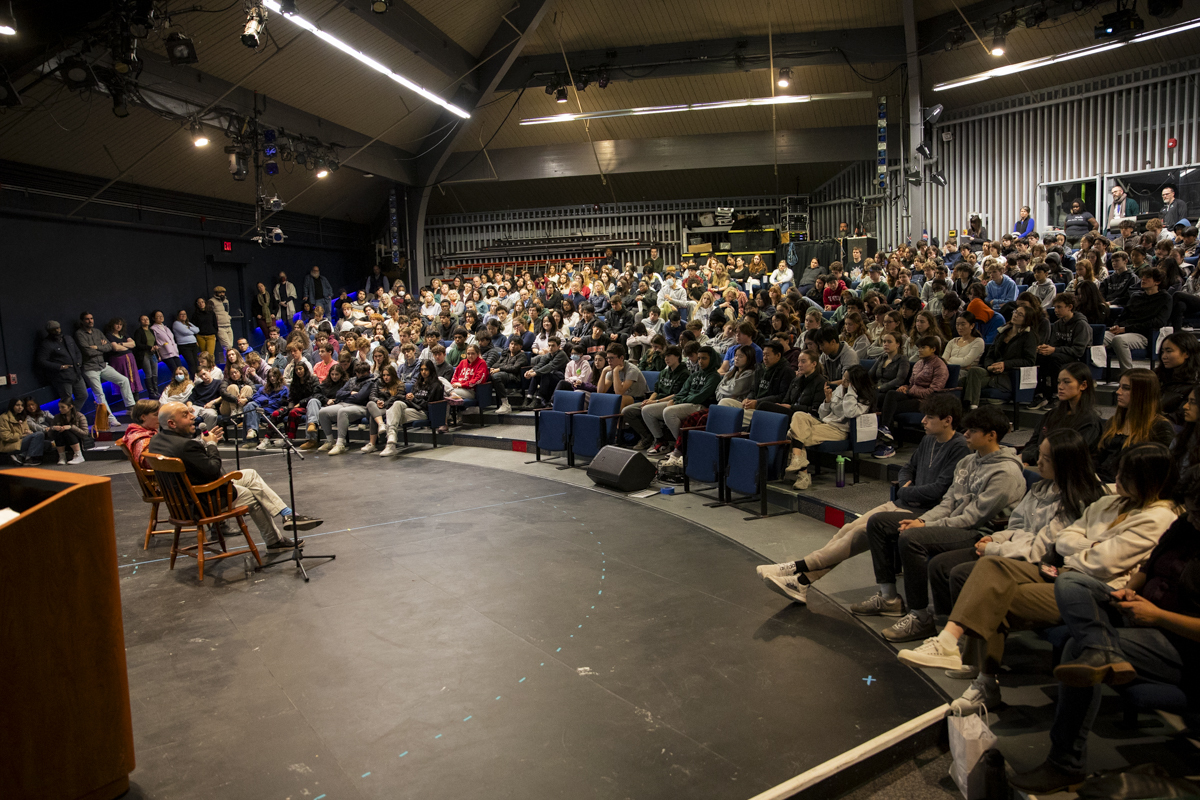
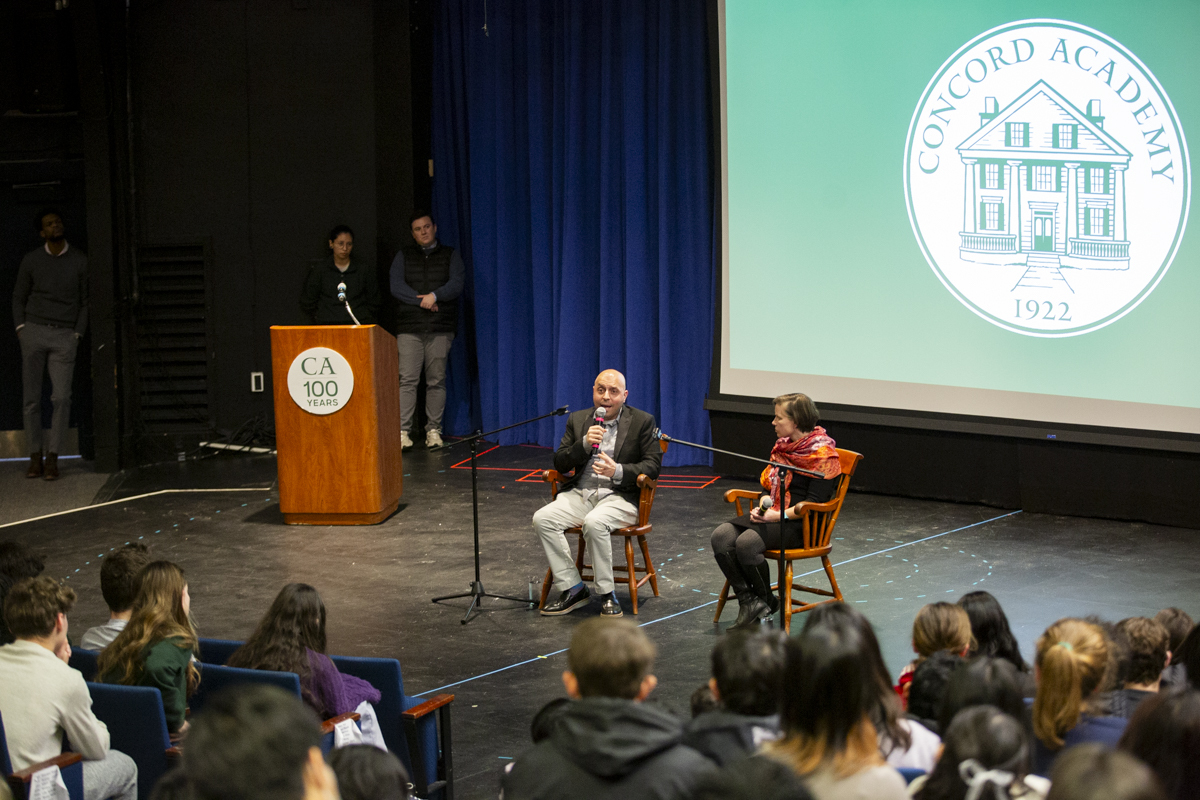
Ross discussed how easy it is to “get stuck in positions” on the Israel-Hamas conflict. “If we’re not open to listening to what other people need, it’s very hard for us to think about moving away from our stance coming into a conversation,” she said. She advocated practicing the skill of listening—“just listening,” she emphasized, without judgment or a need to respond, rather than listening to marshall a counterargument. “It’s an important skill to internalize what people are saying and give yourself the space to reflect,” she said. She advocated reconciling information privately before engaging in debate as well as recognizing the existence of multiple truths and disputable histories.
Picking up in this thread, Atshan referenced the work of Michael Rothberg, a Holocaust studies scholar who originated the concept of “multidirectional memory,” which honors a multitude of histories and experiences (as opposed to comparisons of suffering he describes as “competitive memory” which can present empathy as a zero-sum game). “Empathy is not a finite resource—it can be expanded,” Atshan said. He drew on the Quaker ethos seeing the light in every person, urging empathy for both Israelis and Palestinian citizens. Exploring what it means to center peace in action, he advocated for “radical humanization.”
“It’s important to see the humanity of everyone, especially those with whom we disagree most vehemently,” Atshan said. He said his goal is understanding someone else’s point of view, which he made clear does not mean agreeing with them.
In their closing statements, the presenters discussed how students, educators, and members of any community can take action to support peacebuilding efforts. Atshan proposed spirituality, for those within a faith tradition, as a source of strength, connection, and healing during difficult times. He urged students to educate themselves on the conflict and the role of the U.S. in it and to advocate for causes by writing to their local papers and elected officials.
Ross cautioned that attempting to determine a single truth, without radical empathy and compassionate consideration of other perspectives, can push others away and dehumanize them. She referenced the work of peace and justice studies scholar John Paul Lederach, who describes reconciliation as the space where peace, justice, truth, and mercy intersect. While these aims can often be seen in opposition to each other, Ross emphasized, they are most powerful when approached in unison. She recommended recognizing different lived experiences and prioritizing holding space for relationships.
Following the assembly, students, faculty, and staff convened for debriefing sessions, some entering affinity spaces, others journaling or processing through art, on a walk, or in community dialogue.
